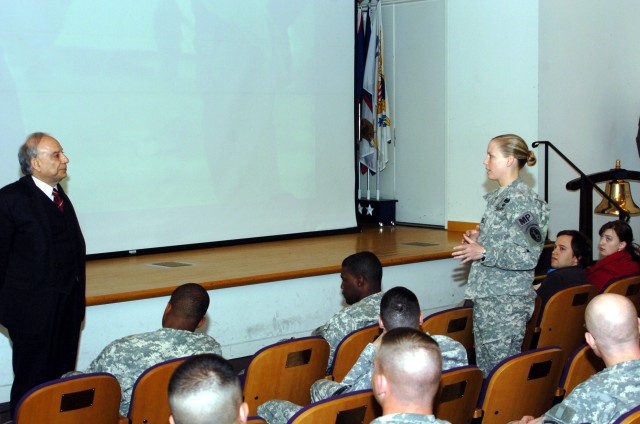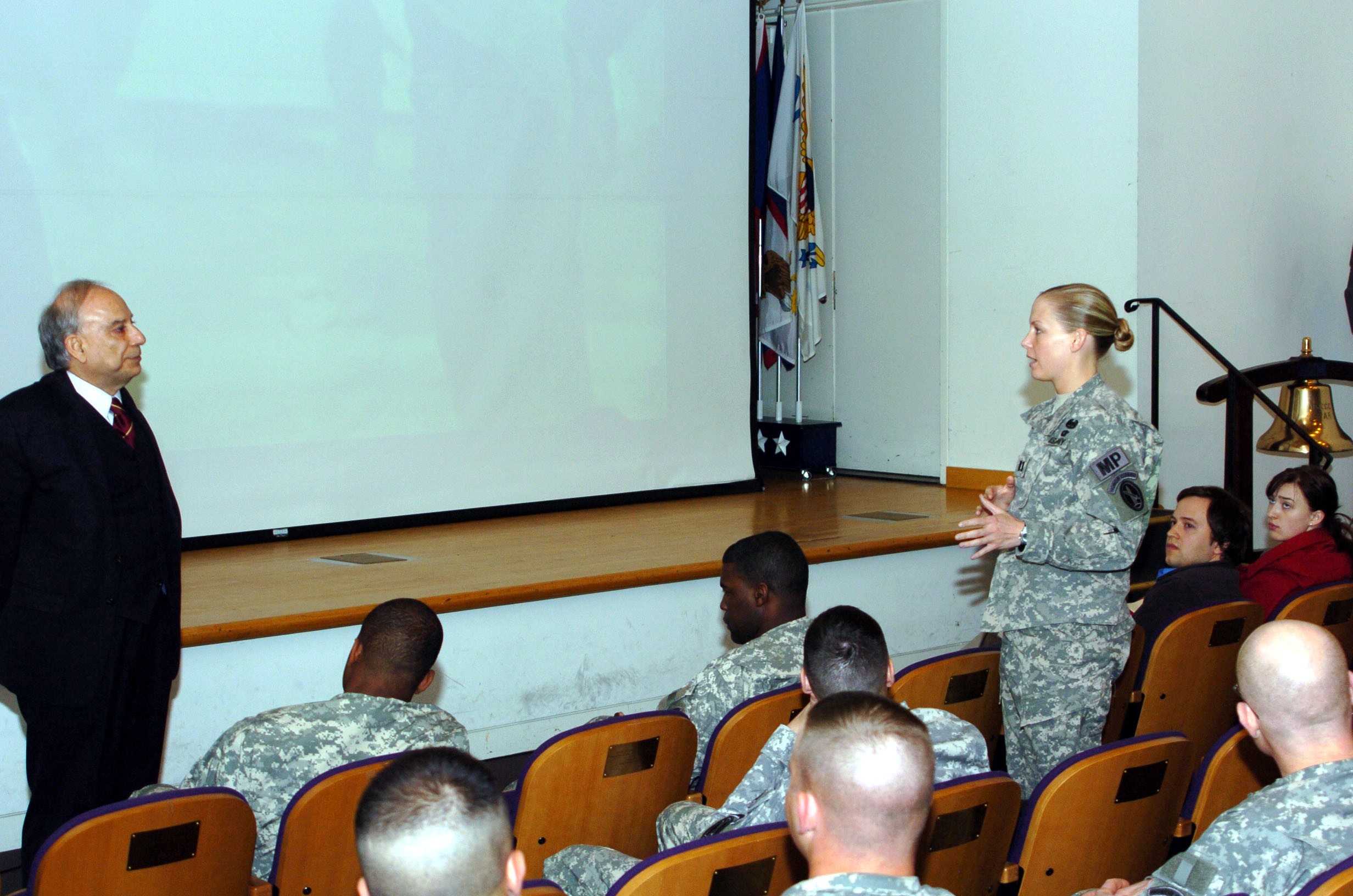Officers and Noncommissioned Officers from 4th Battalion, 3rd U.S. Infantry Regiment (The Old Guard) were lectured Wednesday at the Women's Memorial in Arlington National Cemetery by Dr. Akbar Ahmed about the tribal regions of Pakistan and Afghanistan.
Dr. Ahmed is an esteemed anthropologist, former Pakistani High Commissioner, and is the Ibn Khaldun Chair of Islamic Studies and professor of international relations at American University.
Considered, "the world's leading authority on contemporary Islam," according to BBC, Dr. Ahmed is also the former High Commissioner of Pakistan to Great Britain.
Lt. Col. J.E. Martinez, the commander of 4th Battalion, said many lessons can be learned from Ahmed's books on Islam. Leaders were required to read several publications of Ahmed's, including "Why Obama Must Help its Leaders Save Pakistan," an article explaining how President Barack Obama can help a country with nuclear assets and a shaky government that allows Taliban to cross its borders.
"I've always been interested in tribal insurgency and was able to find some understanding in Dr. Ahmed's books," Martinez said as he introduced Dr. Ahmed.
Once Dr. Ahmed was introduced, he started to give a brief description of the prominent tribes of Afghanistan and Pakistan and, as Soldiers, how they can deal with the tribes.
Dr. Ahmed revealed 4 key factors in the code of the Pashtun, a people who live in southeastern Afghanistan and the northwestern province of Pakistan. They are one of the largest ethnic groups in Afghanistan.
"The first factor is revenge. The Pashtun do not allow insult," Dr. Ahmed said. He went on to explain it is not a religious revenge, but a personal one.
"A popular saying by the Pashtun is, 'I took revenge after 100 years and I took it too soon,'" explained Dr. Ahmed. "They hold grudges through generations."
The second factor is hospitality, which is very strong among tribes, said Dr. Ahmed. "A local chief will judge you immediately and see how you are carrying yourself. It is important you realize that you play the role of a U.S. ambassador... you are representing your country."
If a tribal chief sees you are obeying their common rules, such as staying away from women and mosques, the chiefs will respond in kind, said Dr. Ahmed as the Soldiers listened attentively.
"The third factor is very important. Honor. If this is violated, there will be no compromise," warned Dr. Ahmed.
The fourth factor is respect. "The tribes want respect for their villages and for Islam," Dr. Ahmed said.
Dr. Ahmed stressed on the operational level that sometimes building bridges between Soldiers and tribes is as simple as having knowledge of their views and religions.
"Invite the village elders to share some tea. Speak to them about what you know about Islam. This goes a long way when they see you are trying to learn about their culture," said Dr. Ahmed. "You must understand the Pashtun code and this will help you when you deploy."
Once Dr. Ahmed was finished presenting, he opened up the discussion to questions.
Following the questions, Dr. Ahmed presented Lt. Col. Martinez with his book, "Journey into Islam."
Lt. Col. Martinez then presented Dr. Ahmed with a Certificate of Appreciation from 4th Battalion to express gratefulness towards him for speaking on such a meaningful topic.


Social Sharing